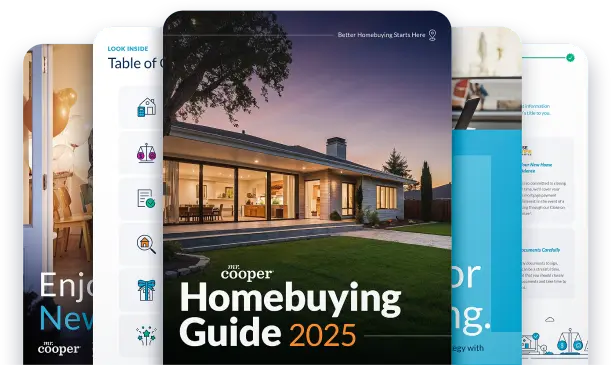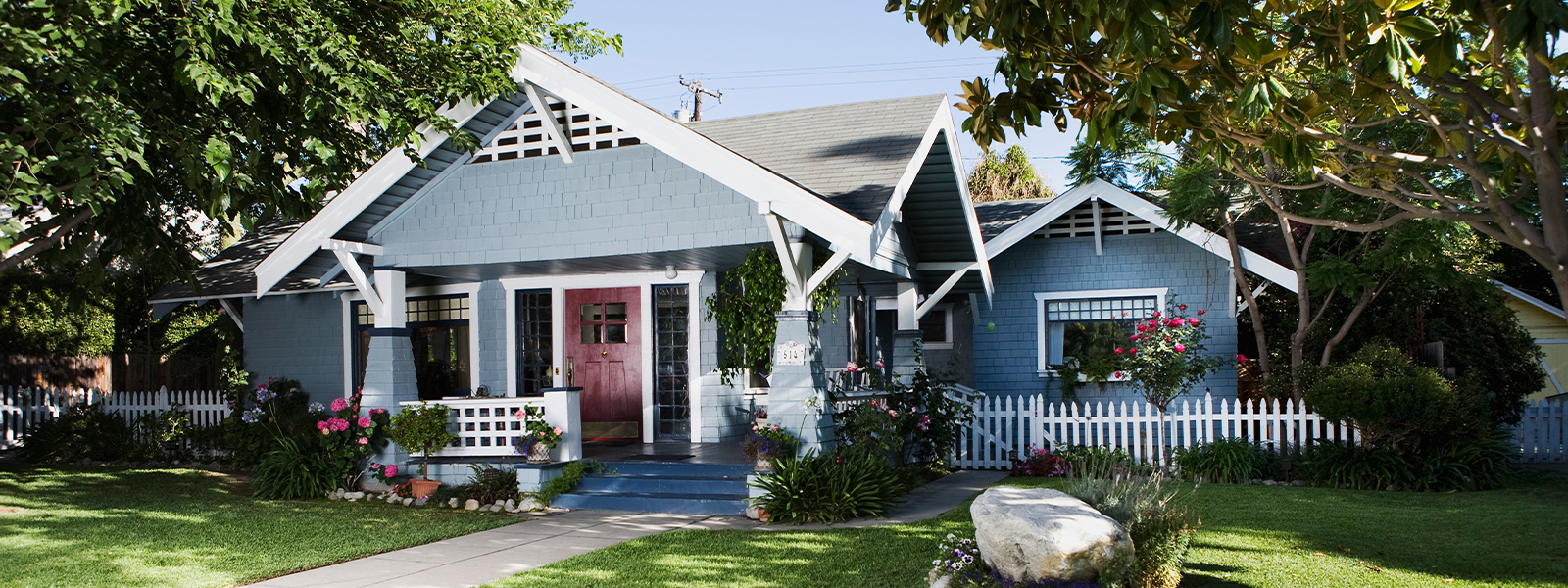Estimated reading time: 5 minutes
Navigating the home loan and mortgage can be complicated. Mr. Cooper knows what questions to ask as a first time homebuyer, so let us break it down and answer 10 of the most common questions that we get about mortgages and all things home loans.
1. How much mortgage can I afford?
This is one of the first questions to ask as a first time homebuyer, because it can help you manage your expectations and start the mortgage process with an idea of how much everything will cost. You can use Mr. Cooper’s mortgage calculators to estimate:


Homebuyers: We’ll Knock 1% Off Your Rate for a Full Year!
2. What do I need to qualify for a loan?
Among other things, mortgage lenders will consider employment history, credit score, your debt-to-income ratio, and how much you plan to put down on your home when determining whether you qualify for a loan. Most lenders look for a stable employment history and a good credit score. Mortgage lenders might also want to look at your total debt (including students loans, car payments, or credit cards) and determine whether it is a manageable percentage of your pre-tax income.
3. Should I get a fixed rate or adjustable rate mortgage?
One of the most common questions to ask as a first time homebuyer is whether to get a fixed rate or an adjustable rate mortgage. Fixed rate loans include an interest rate that is set when you take out the loan. Fixed rates do not change, while interest rates on an adjustable rate mortgage might change. Adjustable rates will often start out lower than a fixed rate, but could go up after an introductory period.
Homeowners who plan to move within a few years might choose an adjustable rate mortgage because the interest rate might be lower in the short term, while those who plan to stay in a home for a longer period time might select a fixed rate for greater stability.
4. What is PMI?
PMI stands for private mortgage insurance. Most lenders require that you pay for PMI if you put less than 20% down on a home, and PMI would protect the lender if you defaulted on your loan payments.

Explore Our 2025 Homebuying Guide
5. Should I get a 15 or 30-year mortgage?
15-year mortgages generally charge lower interest rates, but they generally have higher monthly payments than 30-year mortgages because borrowers have half as long to pay off the loan. 30-year mortgages generally have higher interest rates than 15-year mortgages, but borrowers have more time to pay off the loan. It’s important to consider your needs when trying to determine the loan term that is best for you.
6. How much should I put down?
If it’s affordable for you, a good rule of thumb is to make a 20% down payment. Put down a more substantial down payment if you want to be able to pay off your house quickly or have lower monthly payments.
7. What are mortgage points?
Mortgage points, or discount points, are an extra fee that you can pay in exchange for a lower interest rate. Homeowners who plan on keeping a house for a longer period might choose to buy points because the lower rate will save money in the long term.

Save Up to $10,000 & Get an A-List Agent
Save and simplify when you buy, sell, or both with Mr. Cooper Real Estate Services.1
8. Will I have to pay closing fees?
Check with your lender to know the details about closing fees because every mortgage lender is different. Closing costs can include things like appraisal fees, attorney fees, title insurance fees, documentation fees, and pre-paid taxes and insurance. Closing costs can add up to several thousand dollars to the loan amount, and some of these fees can be purchased through a third party (which means that you might be able to shop around).
9. What is Pre-Approval?
Pre-Approval can give you an idea about what mortgage amount you might be able to afford. Sometimes it can be done over the phone or via email, and it will only take into account the information you give the lender. Think of Pre-Approval as a ballpark estimate. While Pre-Approval is not a guarantee for a loan, it can be beneficial to help you learn your options.
10. What is refinancing, and when should I do it?
While this isn’t necessarily one of the top questions to ask as a first time homebuyer, it’s good to know. Refinancing entails getting a new mortgage to replace an existing one, often to secure a lower interest rate, lower monthly payments, or get cash out. If you’ve had your mortgage for a year or more and notice that refinance rates look lower than your current rate, you might consider contacting your mortgage lender. If you have substantial home equity and need cash, you might consider a cash-out refinance.
Learn more about your mortgage options by getting in touch with Mr. Cooper today.






